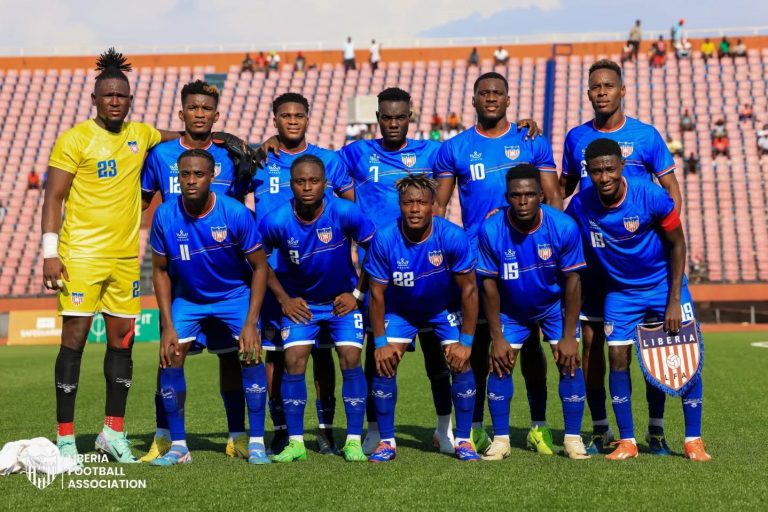Home » Liberia Youth Football Funding Cut: Impact on Future Teams

Liberia Youth Football Funding Cut: Impact on Future Teams
Liberia Youth Football is currently experiencing a crisis. The Liberian government declared it will stop funding U-15, U-17, U-20, and U-23 national teams. LFA President Mustapha Raji confirmed the organization’s choice to focus on senior teams instead of youth squads, which brings up worries about the sport’s future development.
Due to their restricted 2025 sports budget of $550,000, the Liberia Football Association (LFA) needs to use operational funds for youth development. The decision to halt funding for youth national teams threatens Liberia’s competitive performance in future CAF and FIFA tournaments while stunting the development of emerging sports talent.
The sport has suffered long-term damage due to past neglect of youth program funding. A lack of proper support can cause young player development to cease progress, which subsequently weakens the national team’s ability to compete internationally.
National unity and pride depend on the proper development of young talent according to the demands of stakeholders and fans.
Understanding the Government’s Budgetary Priorities
The scarcity of financial resources led to a redistribution of sports funding. Limited government funds require prioritization of senior teams instead of younger squads. Limited resources create complex management challenges for the government when distributing funds to 34 different sports federations.
Budget Constraints and Funding Allocation
Limited to $550,000 for sports in the 2025 budget, the government must make difficult decisions. The Ministry of Youth and Sports has announced that funding will now be dedicated solely to support senior national teams. The budgetary decision impacts youth categories like U-17 and U-20 by eliminating their financial support.
During a media session, LFA President Mustapha Raji gave an explanation about the decision. He stressed the importance of distributing limited resources efficiently. The chart below illustrates how funding amounts have declined in recent years:
Year | Total Sports Budget | Allocated to Football |
2023 | $600,000 | $200,000 |
2024 | $575,000 | $180,000 |
2025 | $550,000 | $150,000 |
Implications for CAF and FIFA Youth Tournaments
The reduction in funding will create immediate effects on international competitions. Starting from 2025, youth teams will be excluded from participating in both CAF and FIFA tournaments. Both boys’ and girls’ teams will experience restricted opportunities for high-level competition because of this exclusion.
Raji highlighted how this decision will create lasting effects. The absence of adequate support will cause young talent development to stagnate and harm the national team’s future competitive standing. The government must reassess its priorities to ensure the sport continues to grow, according to stakeholders.
Challenges in Liberia youth football funding
Budget cuts result in substantial setbacks for grassroots development projects. The withdrawal of financial support for younger teams has sparked concerns regarding the sport’s future prospects. Inadequate investment in youth development programs will lead to stagnation in player formation and cultivation, which will negatively affect national advancement.
Impact on Youth Team Development and National Unity
Young talent development suffers when necessary resources remain unavailable. Youth players who aspired to compete internationally may now face the loss of those dreams. Personal aspirations suffer, and national pride, alongside sports-fostered unity, diminishes because of this.
SWAL consistently speaks out against the dangers posed by ignoring grassroots programs. Their alerts emphasize the threat posed to our nation’s upcoming talent pool by this choice. Experienced athletes and sports commentators have repeated these warnings to stress the urgency of immediate interventions.
Consequences for International Competitiveness
International competitions face immediate setbacks as a result of funding cuts. The absence of participation in CAF and FIFA tournaments prevents young players from gaining essential experience in top-tier gameplay. These decisions might create lasting problems for the national team’s ability to compete worldwide.
Government officials are receiving demands from stakeholders to reassess their current priorities. Investing properly in grassroots programs remains vital for both sports growth and sustaining the nation’s international rankings.
Calls for Alternative Funding Solutions
Innovative approaches outside conventional funding practices are necessary to close the financial deficit in sports. Because government funding is directed toward senior teams, stakeholders are actively looking for new ways to support the development of younger teams. These initiatives work towards securing a prosperous future for the sport.
Corporate Sponsorships and Public-Private Partnerships
Organizations can establish sustainable financial support through corporate sponsorships. Through investment in young athletes’ development, companies can also achieve greater brand exposure. Public-private partnerships provide additional resources for the sport, therefore enhancing the efficacy of this approach.
Brands like Nike and Adidas have run effective grassroots campaigns across several nations. Through these alliances, companies get participation in worldwide events as well as vital money for athlete equipment and training.
Utilizing Operational Funds to Support Youth Teams
The Liberia Football Association (LFA) plans to use operational funds to help younger teams develop. During their most recent press conference, LFA President Mustapha Raji announced this decision. The strategic reallocation of operational funds enables U-17 and U-20 teams to maintain their participation in international competitions.
The LFA is actively working to fulfill the requirements needed for the FIFA Forward Fund. The international grant program supplies financial support to member associations, which plays a crucial role in sustaining development programs.
Funding Source | Potential Impact |
Corporate Sponsorships | Sustainable financial backing for training and equipment |
Public-Private Partnerships | Additional resources for grassroots programs |
Operational Funds | Immediate support for youth competitions |
FIFA Forward Fund | Long-term financial assistance for development |
Alternative funding solutions represent essential measures to mitigate long-term damage from budget cuts. A combination of corporate sponsorships alongside public-private partnerships and international grants will enable national teams to maintain their growth trajectory.
Moving Forward: Securing a Robust Future for Liberian Football
The cornerstone for restoring a strong sports system resides in strategic planning combined with collaborative efforts. The government, together with stakeholders, should make innovative solutions their top priority to tackle existing problems. The future of the sport becomes secure through established public-private partnerships and corporate sponsorship involvement.
Stakeholders must act decisively. The crucial actions needed are investing in grassroots programs and making use of operational funds. Through collective resolve and determination, the team will regain its international standing while transforming challenges into growth opportunities.
